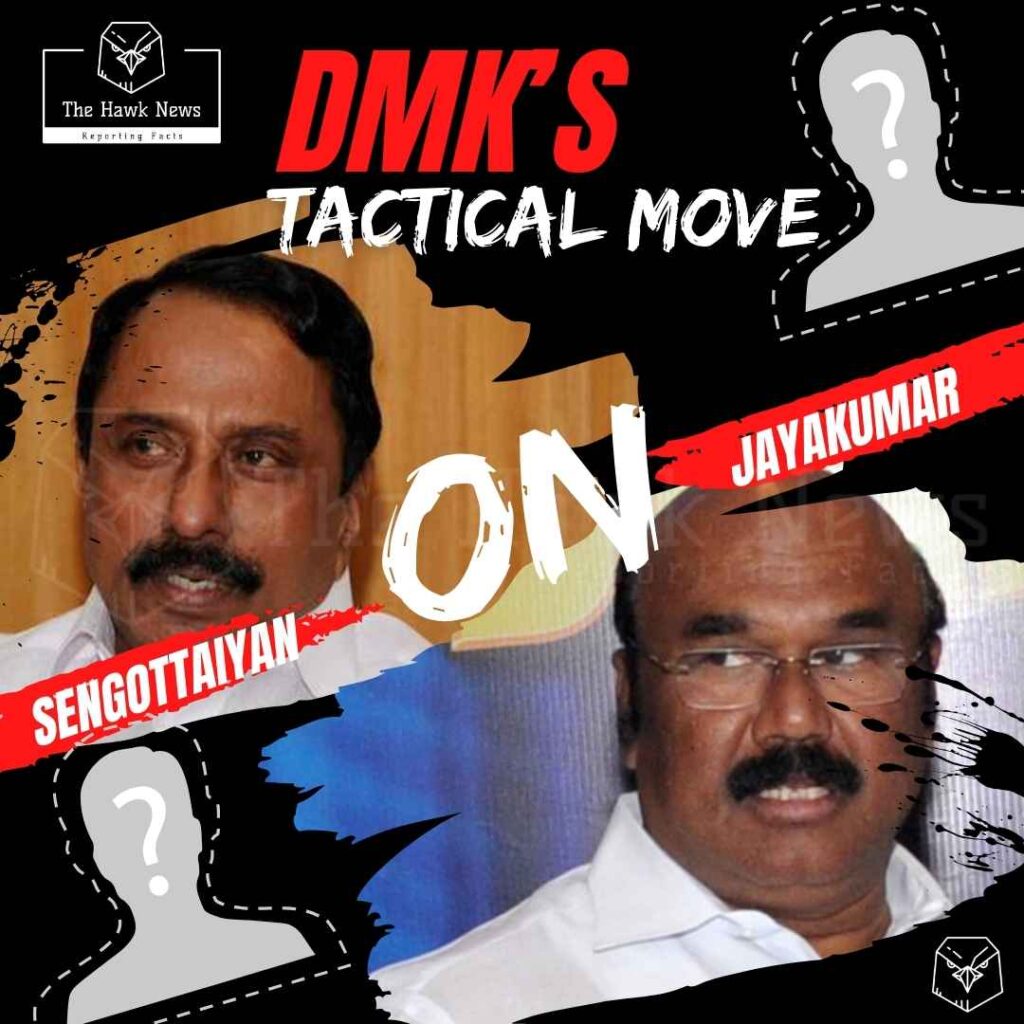
In the dynamic political landscape of Tamil Nadu, the recent alliance between the All India Anna Dravida Munnetra Kazhagam (AIADMK) and the Bharatiya Janata Party (BJP) has stirred significant reactions within the AIADMK ranks. Led by Edappadi K. Palaniswami (EPS), the AIADMK’s decision to align with the BJP has not been unanimously welcomed, leading to internal dissent and providing an opportunity for the Dravida Munnetra Kazhagam (DMK) to capitalize on the situation.
Internal Discord within AIADMK
The alliance, confirmed during Union Home Minister Amit Shah’s recent visit to Chennai, has been a point of contention. Notably, senior AIADMK leader K.A. Sengottaiyan, who played a pivotal role in introducing EPS to the party during M.G. Ramachandran’s era, expressed dissatisfaction over being excluded from the alliance discussions. Sources indicate that Sengottaiyan is discontented with the lack of recognition and is contemplating his political future.
Similarly, former minister D. Jayakumar has publicly voiced his reservations about the AIADMK’s alliance with the BJP. Jayakumar attributes his defeat in the 2021 state elections to the previous alliance with the BJP and has been notably absent from his regular press briefings since the new alliance was announced.
DMK’s Strategic Engagements
Recognizing the brewing discontent within the AIADMK, the DMK has initiated strategic engagements with these dissatisfied leaders. Sengottaiyan has reportedly been in discussions with DMK minister Sekar Babu, himself a former AIADMK member. Their shared history could facilitate Sengottaiyan’s potential transition to the DMK, especially considering his influence in the Kongu region, which could bolster the DMK’s presence there.
In parallel, D. Jayakumar is said to be in talks with DMK minister Senthil Balaji, another ex-AIADMK member. Balaji’s rapport with Jayakumar might ease the latter’s integration into the DMK, further strengthening the party’s position ahead of the 2026 state elections.
Implications for Tamil Nadu’s Political Landscape
The AIADMK’s alliance with the BJP, despite previous assertions to the contrary, has led to internal fractures that the DMK is astutely leveraging. By engaging with disillusioned AIADMK leaders through intermediaries who share a common political lineage, the DMK aims to consolidate its power and expand its influence across the state.
As Tamil Nadu approaches the 2026 state elections, these strategic realignments could significantly alter the political dynamics, with the DMK positioning itself to capitalize on the AIADMK’s internal discord.